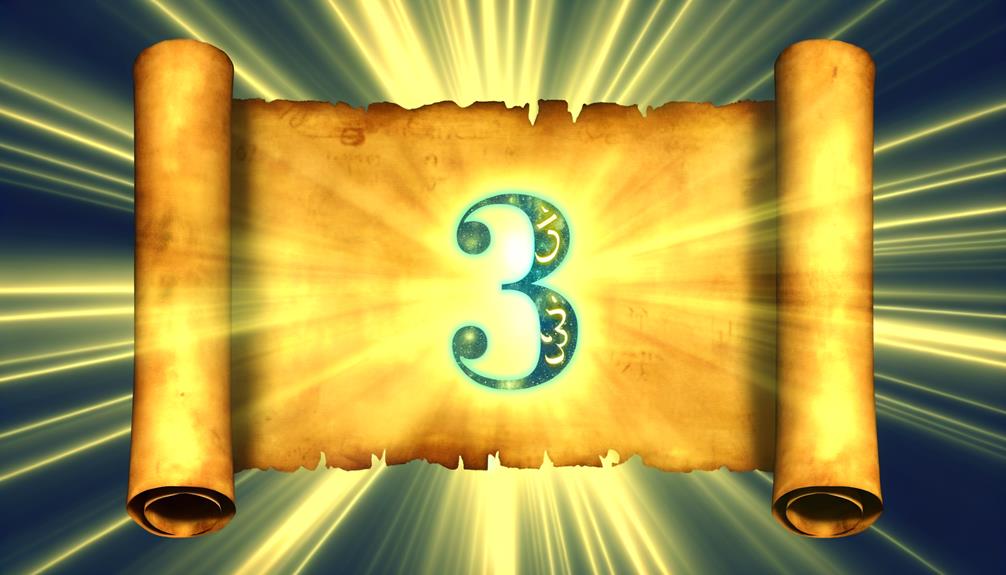Meaning Of 1 3 In The Bible: Divine Unity and Purpose
In the Bible, the numbers 1 and 3 carry profound symbolic meanings. The number 1 signifies the oneness and sovereignty of God, underscoring the foundational principle of monotheism (Deuteronomy 6:4).
The number 3 represents divine completeness and the Holy Trinity, reflecting the unity of Father, Son, and Holy Spirit as well as resurrection on the third day, highlighting victory over death. These numbers enrich theological interpretation and spiritual understanding within the Christian faith.
Further exploration of these symbols reveals deeper layers of biblical wisdom and insight.

Meaning of 1:3 in the Bible: Key Verses and Spiritual Insights
| Book & Verse | Scripture Summary | Spiritual Insight |
|---|---|---|
| Genesis 1:3 | God said, “Let there be light” | God’s creative power and the beginning of divine order |
| Joshua 1:3 | Promise of land wherever Israel sets foot | Assurance of divine inheritance and authority |
| Psalms 1:3 | Righteous man is like a tree planted by water | Stability, fruitfulness, and spiritual prosperity |
| Nahum 1:3 | The Lord is slow to anger but great in power | God’s justice and patience balanced with might |
| James 1:3 | Testing of faith produces perseverance | Growth through trials and spiritual maturity |
Symbolism of Numbers in Scripture

In biblical hermeneutics, numbers often carry symbolic significance that can enhance our understanding of scriptural narratives and themes. The study of these numerological symbols reveals deeper layers of meaning within the text.
For example, the number seven commonly signifies completeness or divine perfection, as reflected in the seven days of Creation. Similarly, the number twelve is frequently associated with divine governance, illustrated by the twelve tribes of Israel and the twelve apostles.
Symbolically, these numbers are not mere figures but convey theological insights, shaping our interpretation of sacred scripture. Understanding the symbolic use of numbers allows readers to grasp the richness and depth of biblical messages, contributing to a more nuanced appreciation of the divine narrative.
Instances of 1 3 in the Old Testament

The Old Scripture features several instances where the numbers 1 and 3 appear in ways that hold significant theological and symbolic importance.
The number 1 often symbolizes the oneness and sovereignty of God, as seen in Deuteronomy 6:4, ‘Hear, O Israel: The Lord our God, the Lord is one.’
The number 3 frequently represents completeness or divine wholeness, exemplified in Jonah’s three days and nights in the belly of the great fish (Jonah 1:17).
Additionally, the trio of patriarchs—Abraham, Isaac, and Jacob—highlights the foundational lineage of Israel.
These instances underscore the profound layers of meaning embedded in Biblical numerology, enriching the spiritual and theological dimensions of the Old Scripture narrative.
New Testament References to 1 3

Building upon the Old Scripture’s numerological symbolism, the New Scripture also imbues the numbers 1 and 3 with profound spiritual significance, particularly in the context of the life, death, and resurrection of Jesus Christ.
The number 1 often signifies the unity and singularity of God, while the number 3 denotes the Holy Trinity. In the New Canon, these numbers appear in pivotal events: Jesus’ resurrection on the third day, the threefold denial and later reinstatement of Peter, and the triad of faith, hope, and love.
| Event | Significance |
|---|---|
| Resurrection on the third day | Victory over death |
| Peter’s threefold denial and reinstatement | Human fallibility and redemption |
| The Holy Trinity | Unity of Father, Son, Holy Spirit |
| Faith, Hope, and Love | Core Christian virtues |
Such references underscore their theological weight in Christian doctrine.
Theological Significance of 1 3

While delving into the theological significance of the numbers 1 and 3, one must consider their profound implications in illustrating the nature of divine unity and the triune Godhead within Christian doctrine.
The number 1 symbolizes the absolute oneness and indivisibility of God, asserting monotheism’s core principle.
Conversely, the number 3 represents the Holy Trinity—Father, Son, and Holy Spirit—emphasizing a complex, yet unified, divine essence.
This dual symbolism provides a foundation for understanding God’s singular existence and relational presence.
The interplay between these numbers encapsulates key theological tenets such as unity, diversity within unity, and the relational aspect of God’s nature, offering profound insights into Christian doctrinal beliefs and spiritual reflections.
Lessons From Biblical 1 3

Examining the lessons derived from the numbers 1 and 3 in the Bible reveals essential insights into the spiritual principles of unity, divine perfection, and relational depth within the Christian faith.
The number 1 symbolizes God’s singularity and oneness, emphasizing monotheism and the indivisible nature of divine authority.
Meanwhile, the number 3 represents the Holy Trinity—Father, Son, and Holy Spirit—highlighting divine completeness and relational dynamics within God’s essence.
These numerical symbols underscore the importance of unity and perfection in both divine and human contexts.
Christians are therefore encouraged to reflect on God’s unified nature and the perfection of His triune existence, fostering deeper spiritual understanding and relational harmony within the community of faith.
Conclusion
In biblical numerology, the numbers 1 and 3 hold profound theological significance, symbolizing unity and divine completeness.
For instance, Jonah’s three days in the whale metaphorically represent resurrection and redemption. Such instances underscore the depth of biblical narratives, inviting believers to contemplate the divine orchestration in Scripture.
Through the recurring presence of 1 and 3, the Bible emphasizes themes of unity, divine intervention, and spiritual wholeness, guiding the faithful toward a deeper understanding of God’s eternal plan.






